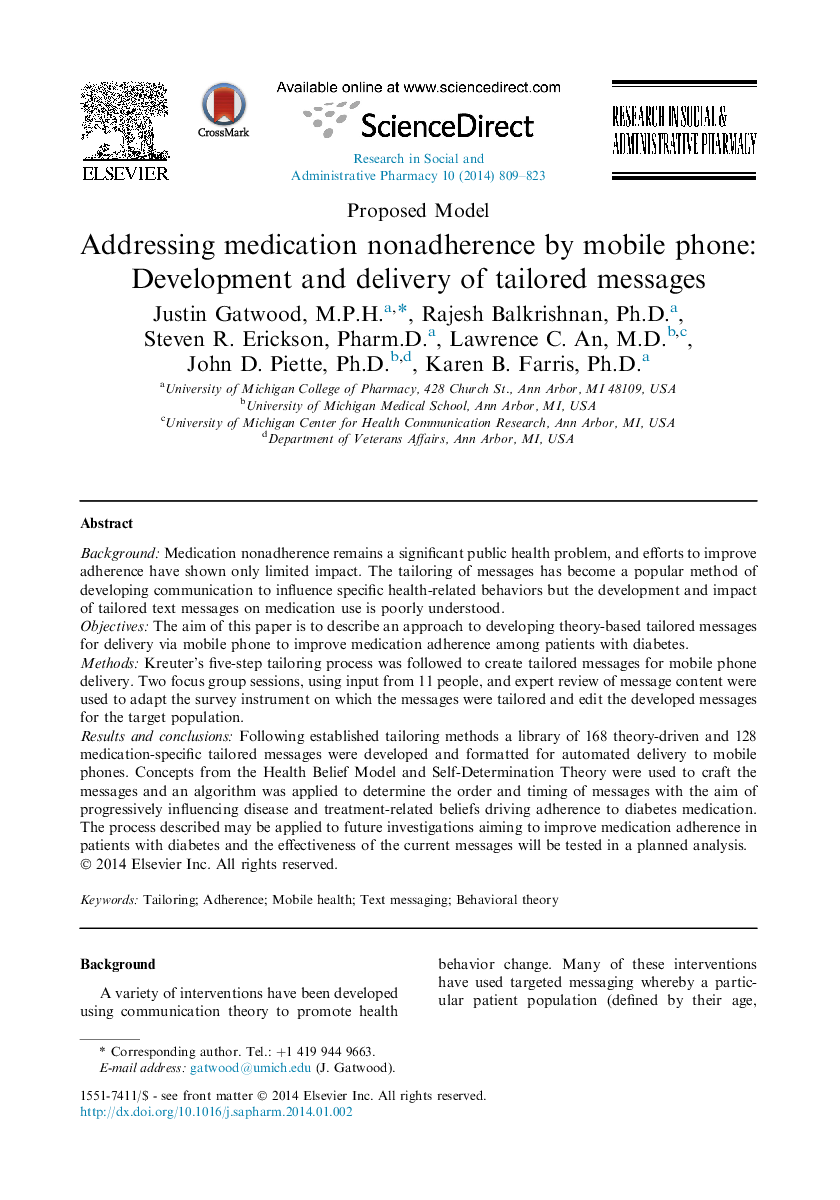| Article ID | Journal | Published Year | Pages | File Type |
|---|---|---|---|---|
| 2508360 | Research in Social and Administrative Pharmacy | 2014 | 15 Pages |
BackgroundMedication nonadherence remains a significant public health problem, and efforts to improve adherence have shown only limited impact. The tailoring of messages has become a popular method of developing communication to influence specific health-related behaviors but the development and impact of tailored text messages on medication use is poorly understood.ObjectivesThe aim of this paper is to describe an approach to developing theory-based tailored messages for delivery via mobile phone to improve medication adherence among patients with diabetes.MethodsKreuter's five-step tailoring process was followed to create tailored messages for mobile phone delivery. Two focus group sessions, using input from 11 people, and expert review of message content were used to adapt the survey instrument on which the messages were tailored and edit the developed messages for the target population.Results and conclusionsFollowing established tailoring methods a library of 168 theory-driven and 128 medication-specific tailored messages were developed and formatted for automated delivery to mobile phones. Concepts from the Health Belief Model and Self-Determination Theory were used to craft the messages and an algorithm was applied to determine the order and timing of messages with the aim of progressively influencing disease and treatment-related beliefs driving adherence to diabetes medication. The process described may be applied to future investigations aiming to improve medication adherence in patients with diabetes and the effectiveness of the current messages will be tested in a planned analysis.
